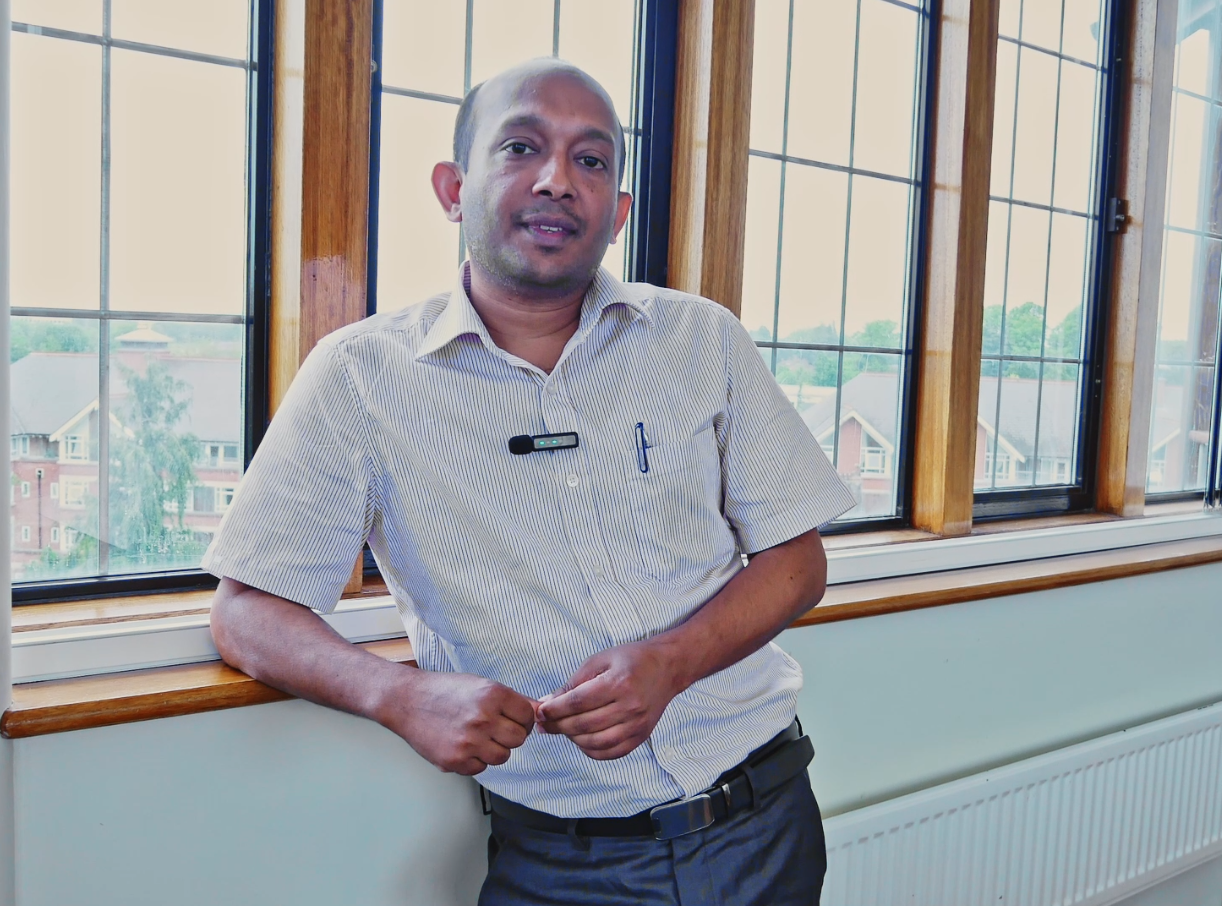Alumnus Siddharth Pillai (St Edmund’s 2018) studied Education Globalisation and International Development and was both a Commonwealth and Cambridge Trust Scholar. He has ten years’ experience working in the education and development space.
Currently based in Nairobi, Sid serves as Global Education Programmes Advisor for Street Child, a global charity which works to ensure that children in crisis-affected areas are safe in school and learning.
Whilst posted to Afghanistan, Sid was responsible for ensuring 60,000 out of school children were brought back into education. It is for this work that Sid won the British Council’s 2024 Study UK Alumni Awards for Social Action.
Sid talks about his passion for education and development and shares his top tips for those seeking a career in the sector.
Life before Cambridge
Prior to Cambridge I was working as a Prime Minister’s Rural Development Fellow for the Government of India. I was responsible for the planning, implementation and evaluation of state and federal projects and schemes related to education, livelihood, child health and rehabilitation in an insurgency affected district of central India. It was during this time that I developed a passion for education and felt I could make a real impact in this space, not just in India but in other conflict-affected regions across the world. I believed a Master’s level education would help me achieve this goal.
Why St Edmund’s?
I considered several universities. But ultimately, Cambridge was the right choice for me. I knew people teaching at the University, academics well-known in their fields. The MPhil in Education Globalisation and International Development promised a highly international cohort, as too did St Edmund’s College. This, along with access to the Faculty of Education’s Real Centre (Research for Equitable Access and Learning) whose belief – education is at the heart of social transformation – was appealing to me.
From India to Cambridge to Afghanistan
Post graduation, it was challenging to secure a role. Recruiters always wanted someone who already had experience in ‘fragile’ areas. Whilst I had experience of working in central India, this was not considered to be such a region.
I started writing blogs about my work experience and sharing these with potential recruiters. Then late one night, I sent a cold email to the Ministry of Education in Afghanistan, and the next day I received a response which led to me joining the Ministry as a Volunteer Education Consultant in 2020.
I was now in a better position to apply to NGOs and after seven months with the Ministry secured a placement with Street Child as an Education Programme Advisor in Kabul.
Fast forward to today, and I support the development and implementation of Street Child’s education programmes across South Asia and Africa.
‘The work that I do at Street Child is not just life sustaining, but also life saving.’
Direct impact, visible results
Working in this space is hugely rewarding. The impact of your work is immediate and profound. During my time in Afghanistan, I managed to ensure that 60,000 out of school children were brought back into education. In Afghanistan, I had to tackle security and safeguarding issues, human and financial resource constraints, corruption and political instability on a day to day basis that disrupts education service delivery and takes the focus away from sustainable development.
Getting children to attend school every day is itself a huge motivation. You get to witness the impact of your work immediately. The chance to implement large scale programmes with almost instantaneous, visible on the ground change is so rewarding.
Anyone who works in this space may question how sustainable it is in the long-term, but the support you extend to these children in the short-term is a huge inspiration. By getting children back into school and off the streets, you are potentially limiting their exposure to the remnants of war, from unexploded bombs to threats of sexual violence.
Advice for those seeking a career in development
I’d recommend two things. Firstly, increase your personal network. Reach out to folks that, like you, have just joined the educational and emergencies space. Reach out to veterans in the space, reach out to recruiters.
The other important thing is to reach out to people who are working in the government of conflict affected countries. Often the state is keen to have students from Cambridge and other respected institutions work with them and help improve teaching and learning systems at scale.
Secondly, stay resilient and try to publish your insights and experiences which could add value to the ecosystem. It doesn’t have to be journals but also blogs from reputable sources. Use this to show your passion and what you have accomplished. It may take some time for your capability to meet an opportunity. Just stay true to your goals and don’t be hesitant to reach out to people you don’t know.
The turning point in my career was a cold email to the chief of staff at the Ministry of Education in Afghanistan – expressing my interest in joining them. That changed everything. Stay true to your goals, keep up your work, and expand your network – you never know where your next call is coming from.





